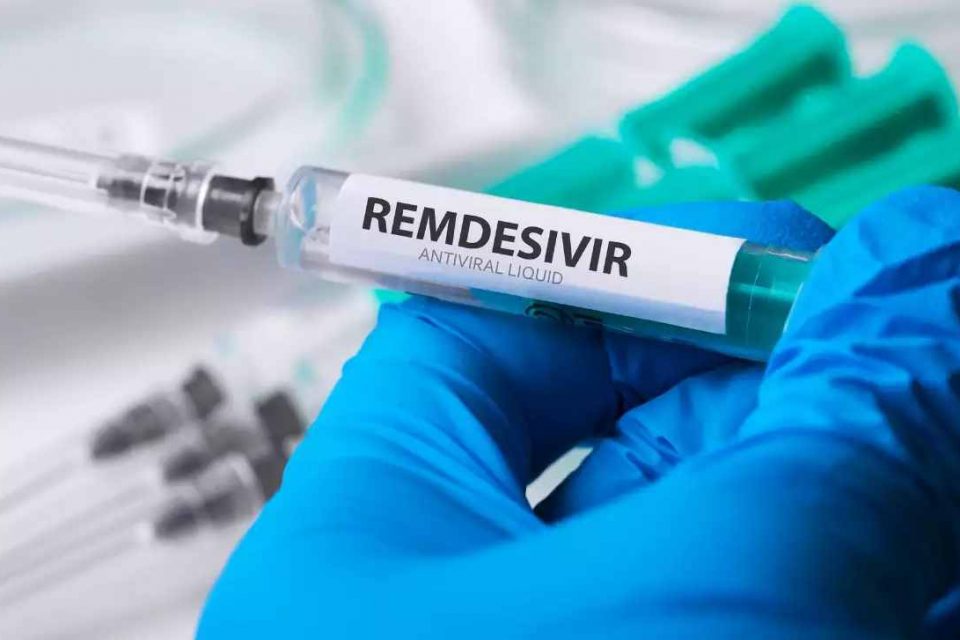Remdesivir Fails to Prevent COVID-19 Deaths in Huge Trial, Did Not Lower Mortality Rate in a Multinational Trial

We’ve been covering the story about Remdesivir since early March. It all started after U.S. President touted the malaria drug hydroxychloroquine as a game-changer for the treatment of coronavirus patients. Ever since his announcement in support of the drug, an all-out war was waged by the media on hydroxychloroquine after several anecdotal reports from doctors that the drug was successfully used to treat many coronavirus patients.
In late March, the CDC issued clinical guidance on chloroquine, hydroxychloroquine, remdesivir as therapeutic treatment options for COVID-19 patients. Remdesivir, a drug manufactured by Gilead Pharmaceuticals, is an investigational intravenous drug with a broad antiviral activity that inhibits viral replication through premature termination of RNA transcription and has in-vitro activity against SARS-CoV-2 and in-vitro and in-vivo activity against related beta coronaviruses.
On April 16, Gilead reported that early trial results from Remdesivir testing showed the drug to be effective in treating coronavirus patients in Chicago hospital. Then on April 23, an independent report from Financial Times, citing documents accidentally published by the World Organization, found that Remdesivir failed in a clinical trial. The report showed that Gilead Sciences’ remdesivir flopped in a Chinese trial aimed at treating coronavirus patients. The study found that Remdesivir did not improve patients’ condition or reduce the coronavirus pathogen in their bloodstream. In June, Gilead said it would make remdesivir at a cost $3,120 per U.S. patient.
Fast forward four months later, a new study of more than 11,000 people in 30 countries sponsored by the World Health Organization (WHO), found that remdesivir failed to prevent COVID-19 deaths in huge a trial. The study finds remdesivir did not lower the mortality rate in a multinational trial. 1253 deaths were reported (at median day 8, IQR 4-14).
According to their findings, the team of scientists reached the following conclusion:
“These Remdesivir, Hydroxychloroquine, Lopinavir and Interferon regimens appeared to have little or no effect on hospitalized COVID-19, as indicated by overall mortality, initiation of ventilation and duration of hospital stay.”
The data, which were posted online on Thursday, have not yet been peer-reviewed or published in a scientific journal. “This puts the issue to rest — there is certainly no mortality benefit,” said Dr. Ilan Schwartz, an infectious-disease physician at the University of Alberta in Canada.
But Dr. Peter Chin-Hong, an infectious-disease expert at the University of California, San Francisco, was more circumspect.
Below is the Abstract of the study.
BACKGROUND WHO expert groups recommended mortality trials in hospitalized COVID-19 of four re-purposed antiviral drugs. METHODS Study drugs were Remdesivir, Hydroxychloroquine, Lopinavir (fixed-dose combination with Ritonavir) and Interferon-β1a (mainly subcutaneous; initially with Lopinavir, later not). COVID-19 inpatients were randomized equally between whichever study drugs were locally available and open control (up to 5 options: 4 active and local standard-of-care). The intent-to-treat primary analyses are of in-hospital mortality in the 4 pairwise comparisons of each study drug vs its controls (concurrently allocated the same management without that drug, despite availability). Kaplan-Meier 28-day risks are unstratified; log-rank death rate ratios (RRs) are stratified for age and ventilation at entry. RESULTS In 405 hospitals in 30 countries 11,266 adults were randomized, with 2750 allocated Remdesivir, 954 Hydroxychloroquine, 1411 Lopinavir, 651 Interferon plus Lopinavir, 1412 only Interferon, and 4088 no study drug. Compliance was 94-96% midway through treatment, with 2-6% crossover. 1253 deaths were reported (at median day 8, IQR 4-14). Kaplan-Meier 28-day mortality was 12% (39% if already ventilated at randomization, 10% otherwise). Death rate ratios (with 95% CIs and numbers dead/randomized, each drug vs its control) were: Remdesivir RR=0.95 (0.81-1.11, p=0.50; 301/2743 active vs 303/2708 control), Hydroxychloroquine RR=1.19 (0.89-1.59, p=0.23; 104/947 vs 84/906), Lopinavir RR=1.00 (0.79-1.25, p=0.97; 148/1399 vs 146/1372) and Interferon RR=1.16 (0.96-1.39, p=0.11; 243/2050 vs 216/2050). No study drug definitely reduced mortality (in unventilated patients or any other subgroup of entry characteristics), initiation of ventilation or hospitalisation duration.
CONCLUSIONS These Remdesivir, Hydroxychloroquine, Lopinavir and Interferon regimens appeared to have little or no effect on hospitalized COVID-19, as indicated by overall mortality, initiation of ventilation and duration of hospital stay. The mortality findings contain most of the randomized evidence on Remdesivir and Interferon, and are consistent with meta-analyses of mortality in all major trials. (Funding: WHO. Registration: ISRCTN83971151, NCT04315948)

